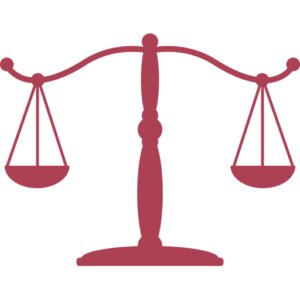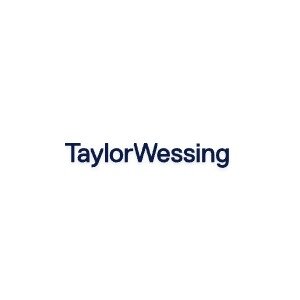Best Energy Regulatory Law Lawyers in Netherlands
Share your needs with us, get contacted by law firms.
Free. Takes 2 min.
Or refine your search by selecting a city:
List of the best lawyers in Netherlands
About Energy Regulatory Law in Netherlands
Energy Regulatory Law in the Netherlands is a branch of law that oversees the generation, distribution, supply, and use of energy resources such as electricity, gas, and renewable sources. This area of law is designed to ensure that the energy market operates fairly, sustainably, and in compliance with both national and EU frameworks. It covers everything from market access and tariffs to consumer protection and environmental sustainability. The industry is highly regulated due to the importance of energy in everyday life and the transition to greener energy solutions.
Why You May Need a Lawyer
A lawyer specializing in Energy Regulatory Law can assist in several situations. These include:
- Starting a business in the energy sector, such as electricity production, distribution, or trading
- Navigating licensing or permit procedures required by Dutch authorities
- Dealing with disputes related to energy contracts, tariffs, or grid access
- Ensuring compliance with Dutch and EU energy regulations and emission rules
- Handling mergers, acquisitions, or investments involving energy companies
- Appealing decisions made by regulatory authorities such as the Authority for Consumers and Markets (ACM)
- Understanding obligations related to renewable energy initiatives and subsidies
- Managing liability issues arising from energy supply interruptions or system failures
Legal expertise helps prevent costly mistakes, ensures proper handling of complex regulations, and protects organisational or personal interests in a highly regulated environment.
Local Laws Overview
The key aspects of Dutch Energy Regulatory Law are shaped by both national legislation and European Union directives. Dutch legislation is primarily found in the Electricity Act (Elektriciteitswet 1998) and the Gas Act (Gaswet). These laws establish the framework for:
- Market liberalization and free competition among energy providers
- Grid management and third-party access to transmission and distribution systems
- Tariff structures and price regulation
- Renewable energy targets, including the Energy Agreement for Sustainable Growth
- Consumer protection and transparency of contracts
- Emissions control and climate policy compliance
- Licensing and authorization requirements for energy companies
- Monitoring and enforcement by the Authority for Consumers and Markets (ACM) and the Dutch Emissions Authority (NEa)
Additionally, Dutch policies align closely with EU "Fit for 55" and Green Deal goals, driving the rapid adaptation to green technologies and stricter sustainability requirements.
Frequently Asked Questions
What is the role of the Authority for Consumers and Markets (ACM) in energy regulation?
The ACM is the main regulatory body overseeing competition, consumer protection, and tariff regulation in the Dutch energy markets. It grants licenses, monitors compliance, and handles complaints or disputes between market parties.
Do I need a license to supply energy in the Netherlands?
Yes. Supplying electricity or gas to end-users requires a license from the ACM. This applies to producers, suppliers, traders, and grid operators.
What are the main laws governing the energy sector?
The Electricity Act 1998 and Gas Act are the cornerstone legislations, complemented by environmental and consumer protection laws. European directives also have direct influence.
How does the Netherlands encourage renewable energy?
The government provides subsidies, tax incentives, and sets mandatory targets for renewable energy production and consumption. Programs such as SDE++ support large-scale renewable projects.
Can consumers freely switch between energy suppliers?
Yes. The Dutch market is liberalized, allowing both residential and business consumers to choose their energy suppliers and benefit from competitive rates.
What are my rights if I experience an energy supply interruption?
Consumers are entitled to compensation for prolonged or repeated power outages under certain conditions. Grid operators are obligated to ensure reliable service.
How does the Netherlands address energy transition and climate change?
Through comprehensive policies such as the Dutch Climate Agreement, the country aims to drastically reduce CO2 emissions, phase out fossil fuels, and support innovation in sustainable energy.
What should I do if I have a dispute with my energy supplier?
First, try to resolve the issue directly with the supplier. If unresolved, consumers can escalate to independent dispute committees or file a complaint with the ACM.
Are there specific rules for energy companies merging or acquiring others?
Yes, mergers and acquisitions in the energy sector are subject to regulatory approval to avoid monopolistic situations and to protect market competition. The ACM must review and approve major transactions.
Does the Energy Regulatory framework apply to both traditional and renewable energy sources?
Yes. The same regulatory requirements apply to both traditional (fossil fuels) and renewable energy (wind, solar, biomass), although there are additional incentives and obligations for renewables.
Additional Resources
If you require further information or wish to stay updated on legal and regulatory developments in the Dutch energy sector, the following resources may be useful:
- Authority for Consumers and Markets (ACM): Regulatory body for the energy market
- Dutch Emissions Authority (NEa): Agency overseeing emissions trading and climate policies
- Ministry of Economic Affairs and Climate Policy: Responsible for national energy policy
- Dutch Energy Law Association: Professional organization of energy law specialists
- ConsuWijzer: Consumer advice platform for energy-related complaints
- SDE++ Scheme: Governmental subsidies for renewable energy projects
Next Steps
If you are facing an issue or have questions related to Energy Regulatory Law in the Netherlands, the following steps can help you move forward:
- Identify your specific issue or question - whether it is about compliance, a contract, a license, or a dispute
- Collect all relevant documentation such as contracts, correspondence, permits, or regulatory decisions
- Reach out to a qualified lawyer or legal advisor with experience in Dutch Energy Regulatory Law
- Consider contacting the relevant regulatory body for procedural questions or guidance
- Attend a consultation to discuss your options and clarify the legal framework that applies to your case
- Take action based on professional legal advice, whether that involves negotiation, compliance adjustments, or starting legal proceedings
Acting early and relying on specialized legal help will ensure that you comply with regulations and protect your interests in the dynamic Dutch energy market.
Lawzana helps you find the best lawyers and law firms in Netherlands through a curated and pre-screened list of qualified legal professionals. Our platform offers rankings and detailed profiles of attorneys and law firms, allowing you to compare based on practice areas, including Energy Regulatory Law, experience, and client feedback.
Each profile includes a description of the firm's areas of practice, client reviews, team members and partners, year of establishment, spoken languages, office locations, contact information, social media presence, and any published articles or resources. Most firms on our platform speak English and are experienced in both local and international legal matters.
Get a quote from top-rated law firms in Netherlands — quickly, securely, and without unnecessary hassle.
Disclaimer:
The information provided on this page is for general informational purposes only and does not constitute legal advice. While we strive to ensure the accuracy and relevance of the content, legal information may change over time, and interpretations of the law can vary. You should always consult with a qualified legal professional for advice specific to your situation.
We disclaim all liability for actions taken or not taken based on the content of this page. If you believe any information is incorrect or outdated, please contact us, and we will review and update it where appropriate.
Browse energy regulatory law law firms by city in Netherlands
Refine your search by selecting a city.
















